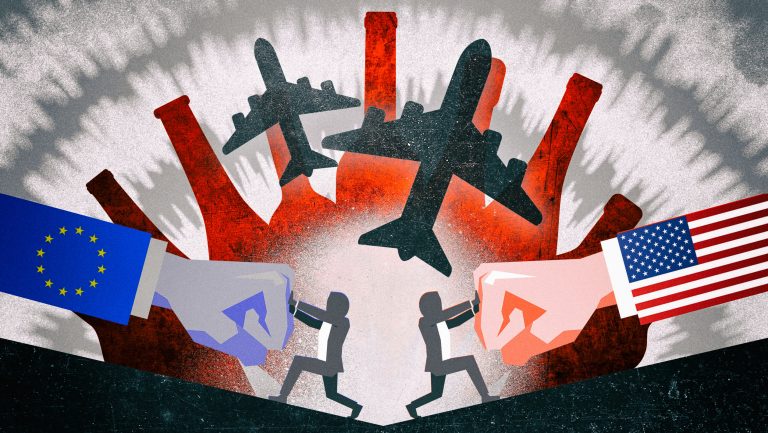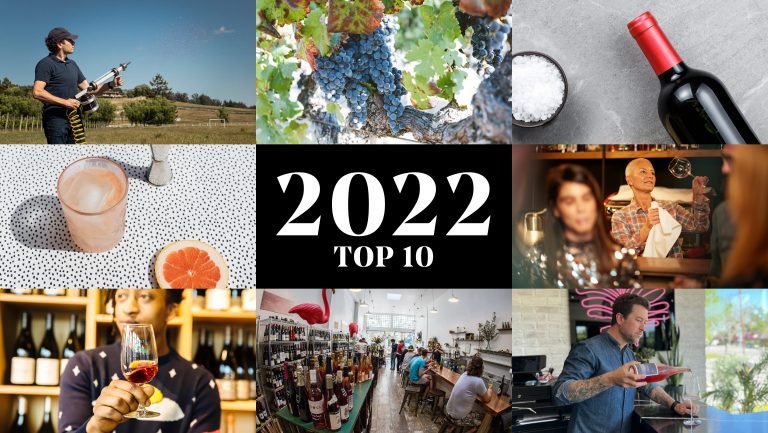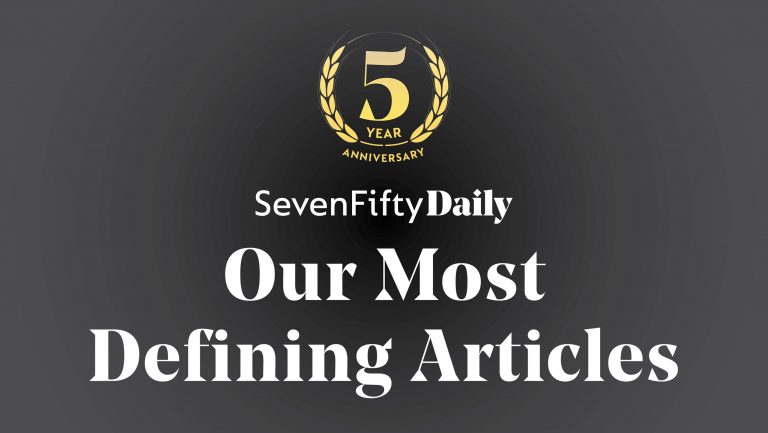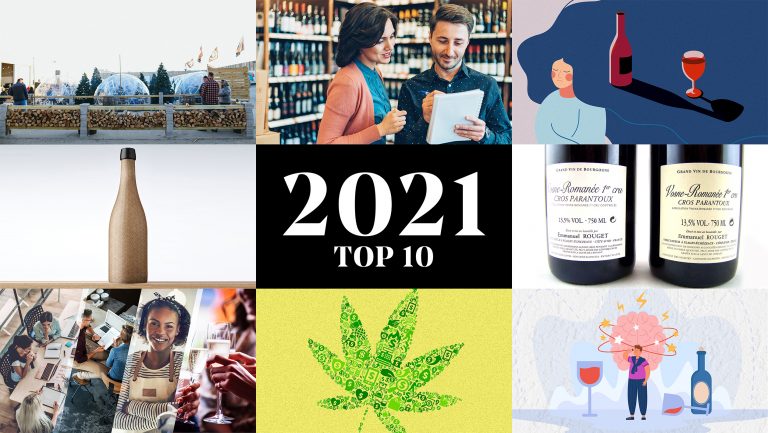On July 26, President Donald Trump tweeted threats to place tariffs on French wine imports in retaliation against new French taxes on digital companies, including American tech giants Google, Apple, and Facebook. Some considered the threat hypothetical—Trump had issued similar tweets in the past—but an ongoing dispute with the European Union over aircraft subsidies may make such tariffs a reality in the near future.
The trade dispute with the EU started in 2004, when the U.S. government filed a claim with the World Trade Organization (WTO), charging that European countries were illegally subsidizing the European aircraft giant Airbus—and in turn harming the U.S. company Boeing.
The WTO found in favor of the U.S. claim in May 2018, as the EU had failed to end subsidies to Airbus; the U.S. was authorized by the decision to retaliate with tariffs. (In March of this year, the WTO found in favor of an EU claim after it was determined that certain U.S. tax breaks to Boeing had harmed Airbus, which opens the door for the EU to retaliate as well.)

Don’t miss the latest drinks industry news and insights. Sign up for our award-winning newsletters and get insider intel, resources, and trends delivered to your inbox every week.
If it obtains the approval of the WTO, the U.S. Trade Representative (USTR), an office of the executive branch, could impose upwards of $21 billion dollars in tariffs on about 300 EU goods, including helicopter parts, European cheeses, olive oil, and seafood—but also liqueurs, wine, and brandy. It’s worth noting that these tariffs are not limited to French wine, per Trump’s tweet. And it’s expected that the EU would retaliate with tariffs of its own, on products including U.S. whiskey and wine.
Trade Groups Rally Against Tariffs
On August 5, industry trade groups spoke out, urging the USTR not to impose new tariffs on European wines and spirits. “The proposed retaliatory tariff list is part of a long-standing dispute at the World Trade Organization … regarding civil aircraft subsidies and is unrelated to the beverage alcohol industry,” the public statement to the USTR read in part. The trade groups that signed the statement are the Distilled Spirits Council, the Kentucky Distillers’ Association, the Wine Institute, the American Craft Spirits Association, WineAmerica, Wine & Spirits Wholesalers of America, the National Association of Beverage Importers, American Beverage Licensees, the Wine and Spirits Shippers Association, and the American Distilled Spirits Association.
The groups estimate that imposing the tariffs on EU products would incur the loss of 78,600 jobs throughout the U.S. beverage alcohol and hospitality industries, from production and import jobs to distribution and shipping. According to the statement, U.S. distilled spirits represented $1.8 billion in exports in 2018, while wine accounted for $1.5 billion.
“It’s an eye-for-an-eye situation,” says Robert Tobiassen, the president of the National Association of Beverage Importers. “This dispute comes down to civil aircraft [companies]—it’s not effective to make this a dispute over alcoholic beverages. [The government] would be penalizing businesses, their employees, and consumers—not the parties involved in the dispute. Impose the tariffs on aeronautical parts, not alcohol beverages.”
How Tariffs Will Affect U.S. Businesses and Consumers
According to Mary Taylor, who imports wines under her own eponymous négociant label, retaliatory tariffs will affect businesses like hers as well as consumers. “If Trump puts an additional tax on the import,” she says, “it’s the import companies—American small businesses—that pay. That additional cost will extend to the American consumer for goods.” Whether the tariffs are imposed on French wines, as Trump tweeted, or other categories of European goods, it’s all the same, says Taylor. “Tariffs are actually taxes on Americans.”
Taylor and Tobiassen agree not only that tariffs will harm importers of all sizes but that the resulting marketplace will also feel the hurt in other ways. “Consumers also lose out on diversity and choice,” says Taylor. “Free trade is what made our economy so robust and allows small businesses to thrive.”
Says Tobiassen, “If [an importer’s] brands are out of the market for a period of time, it’s difficult for those products and smaller businesses to regain their market share. [Importers and brands] spend a lot of time and effort building their business in the market.”
This is an echo of Tobiassen’s written testimony to the USTR, in which he said, “[Importers] sell brand names of Irish Whiskey, Scotch Whisky, and other EU origin whiskies that are not household names and have taken years of promotion and dedicated brand ambassador time to build a consumer demand … Absorbing a 25 percent or 100 percent tariff is not possible either directly by them as the importer, or by their distillery supplier in Europe, or by some combination of the two. Most likely, more well-known brand names of the larger global companies will fill that gap in the long run and only make it more difficult if not impossible for the small importers to re-enter the market.”
In a separate statement, Robert P. Koch, the Wine Institute’s president and CEO, wrote, “Wine Institute supports the position that wine should not be targeted for retaliation in trade disputes involving products other than wine … Should the U.S. government place EU wine on the final list involving an Airbus airplane dispute, the EU has already said they will target U.S. wine in a Boeing airplane dispute. This would cause economic damage in the largest export market for U.S wines.” Exports of U.S. wine and beer to EU countries totaled $563 million in 2018, according to USTR, with the United Kingdom alone accounting for $261 million. (As of publication, beer is not included among the U.S. or EU’s proposed tariffs.)
In the spirits space, the EU has been imposing a 25 percent tariff on American whiskey since June 2018—it has resulted in a 19 percent decline of exports, according to the Distilled Spirits Council statement. “Our industry has been fortunate to have enjoyed free and fair trade with the EU over the past 25 years,” the statement reads. “Unfortunately, American whiskeys have become collateral damage in an unrelated trade dispute.”
The proposed tariffs must first be approved by the WTO, expected at a later date.

Dispatch
Sign up for our award-winning newsletter
Don’t miss the latest drinks industry news and insights—delivered to your inbox every week.
Joseph Hernandez is the Senior Editor at SevenFifty Daily. He is an award-winning writer who previously served as a deputy editor of food and dining, overseeing drinks coverage, at the Chicago Tribune, and as senior travel editor at Thrillist. He is advanced WSET-certified, with plans to pursue Diploma.







